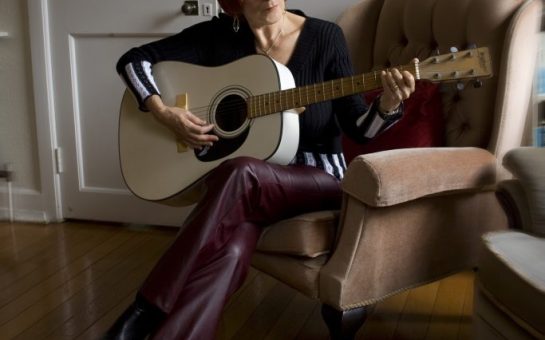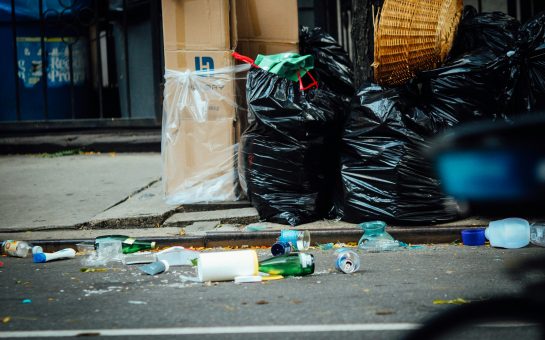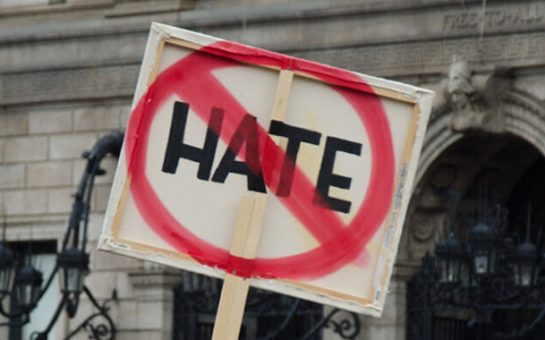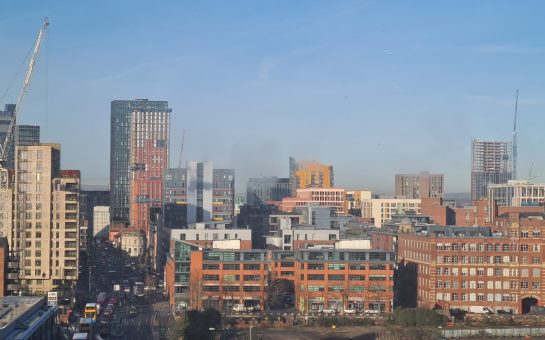More and more victims of rape and sexual assault are seeking help and advice across the city but support serivce, Manchester Rape Crisis, could face budget cuts.
St Mary’s Sexual Assault Referral Centre reported a 21% increase in the number of victims coming to them for help between 2013-14 and 2014-15.
And while the Manchester faction has seen a local increase, Rape Crisis has experienced a national increase of 50% between 2012-13 and 2013-14.
A Freedom of Information request submitted by MM shows that the number of rapes and sexual assaults reported to Greater Manchester Police increased by 45% in the past year.
A rape victim, who sought help from St Mary’s and asked to remain anonymous, told MM: “The help that I got from St Mary’s was invaluable and without them I wouldn’t have been able to be strong enough.”
She explained that her attacker tried to manipulate her and force her not reporting it but St Mary’s support helped her realise this was entirely her decision.
She said: “He said if I told anyone he’d kill himself, so initially I didn’t want to report it.
“But luckily I had this friend who had heard of St Mary’s and she knew that you could self-refer and you didn’t have to report it.
“So she took me to St Mary’s on the day of the incident so I had a forensic examination. That just really took the pressure off.
“I wasn’t worrying about whether to report or not to report. I just didn’t think about that at all.
“They also put me in contact with an Independent Sexual Violence Advisor.
“She was really, really helpful in explaining what would happen to me if I did report it or if I didn’t report it. I’d still get support.
“When I decided a couple of weeks later that I did want to report it the support I had from St Mary’s was just incredible.
“You can ring any time of day or night. I don’t think I would have managed to go through it without that support.
Eventually though, thanks to the support network she had at St Mary’s she decided to report her attack to the police.
She said: “After a couple of weeks I decided to go to the police, which was a very, very good experience.
“I dealt with a specialist unit and they were great. They said they believed me straight away. They were really supportive.”
When the case went to trial, St Mary’s staff accompanied the victim to the courtroom beforehand so she could see where she’d be and where her rapist would be.
They also went with her during the trial. Her attacker was found guilty and sentenced to 10 years in prison.
She said: “I thought about dropping out all the time but I knew that at any time of the day or night I could pick up the phone and speak to someone.
“They would just listen and that really did get me through.
“I would encourage anyone, whether it’s recent or non-recent, if they want any help or support, to contact St Mary’s because the people there were just amazing.
“They’ll support you in whatever way you want without putting any pressure on you.”
However, Manchester Rape Crisis manager Anne Stebbings said that many victims don’t go to the police at all, with fewer than 15% of rapes and sexual assaults being reported.
“It’s one of the most under-reported crimes that there is,” she told MM.
Ms Stebbings added that there had been a ‘transformation’ in the way police handle rape cases, but many victims are not aware of it because rape isn’t talked about.
“People do not talk about their own experiences with other people,” she said.
“I think that’s really based on this myth that there’s a kind of rape that’s a real rape and other rapes don’t fit into that category, so no one’s going to believe you.”
“If you’re jumped on in the dead of night by somebody wielding a knife then that is a real rape, but if you’re raped by somebody that you know then that’s not really rape because you might have slept with them before or you might have been drunk or you might have flirted, in which case you’re probably going to think ‘No one’s going to believe me, I brought it on myself’.”
Last year Greater Manchester Police launched the #noconsentnosex campaign, aimed at university students.
Detective Inspector Damian Simpson from GMP’s Serious Sexual Offences Unit explained the message of the campaign.
He said: “It doesn’t matter whether there has been flirting, kissing or you’ve exchanged numbers – sex without consent is rape, and if somebody is too drunk to consent then the best thing for all involved is to assume it has not been given.”
Ms Stebbings added another reason rape victims sometimes don’t go to the police is because they don’t react they way they’re ‘expected’ to – shutting down rather than breaking down.
“Women don’t always react in the way that people think they will when they’re raped,” she said.
“People think that they’re going to be immediately really, really distressed or very upset but often women shut down and try and cope and get on with things.
“But it’s only a bit later on when they feel a bit overwhelmed by what’s happened to them, and at that point they might think it’s too late to report because most women are raped by someone they know and that can take a bit of getting your head around, that somebody you trusted can do that to you.
“I think there’s a lot of shame, a lot of self-blame that stops women from reporting, and not knowing what the consequences of reporting will be.”
Ms Stebbings said rape victims could also be afraid of going to court, or of intrusive forensic exams.
She urged rape victims who are unsure whether to go to the police to contact their local Rape Crisis or other support centre and talk to an Independent Sexual Violence Advisor.
Manchester Rape Crisis also called for the police to change the way they record offences reported by adult survivors of child sexual abuse.
They said police should record the age at which the victim reported the crime, not just the age they were when it took place.
“Lots of survivors, lots of women leave it a very long time before they tell anybody,” Ms Stebbings said.
“That gives you a better indication of what’s going on.”
Allegations of historic sexual abuse have increased following the start of the Operation Yewtree police investigation into Jimmy Saville and other high-profile figures.
Last week Judge Lowell Goddard announced the first 12 independent investigations into child sexual abuse.
They will cover institutions including Westminster, the Church of England, and the Roman Catholic Church, as well as child grooming and sexual exploitation cases in Rochdale.
A Ministry of Justice spokesperson said: “We will continue to ensure that the most vulnerable in our society, and those who have been victims of crime, are properly supported.”
However, Ms Stebbings said that Manchester Rape Crisis were afraid they’d experience cuts in their funding from Manchester City Council and the Ministry of Justice, especially following last week’s government spending review.
“It would probably mean a reduction in services and an extension of our waiting list times,” she said.
“Women will have to wait longer to be seen.”
St Mary’s said they are not currently facing funding cuts.
St Mary’s provides support including forensic examination, health screening, counselling, crisis support and support through the criminal justice process for everyone who accesses their services.
Last year they supported more than 1,400 women and girls and 175 men and boys.
Manchester Rape Crisis only support women rape survivors (including trans women), but they refer male survivors to Survivors Manchester.
They also provide helpline support for men seeking to support their daughters, friends or partners after they’ve been raped.
To access support, contact Manchester Rape Crisis on 0161 2734500, St Mary’s on 0161 2766515 or Survivors Manchester on 0161 2362182.



